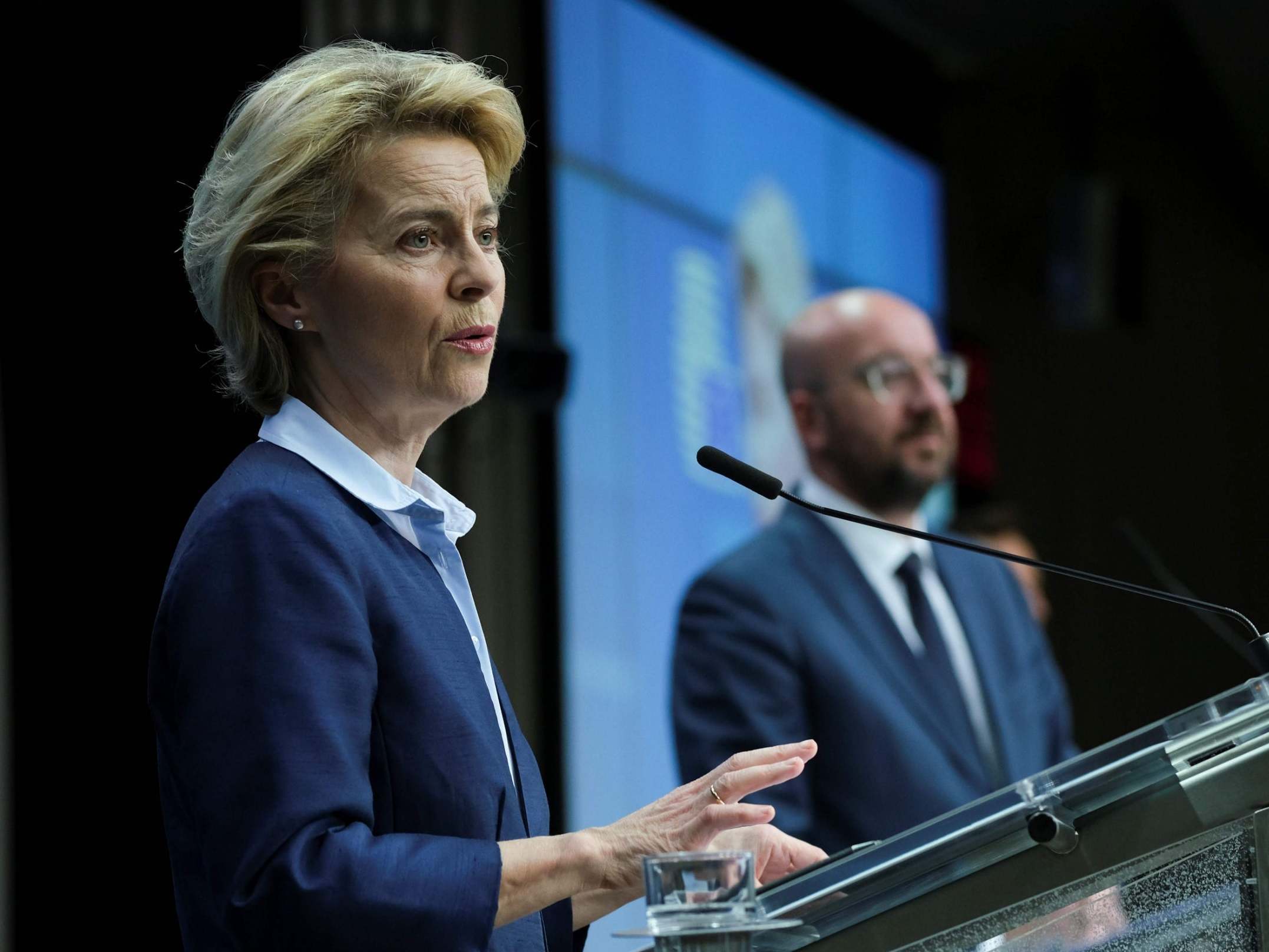Coronavirus: EU moves towards trillion-euro recovery stimulus package
European Commission’s ‘own resources’ to be significantly increased to help countries

Your support helps us to tell the story
From reproductive rights to climate change to Big Tech, The Independent is on the ground when the story is developing. Whether it's investigating the financials of Elon Musk's pro-Trump PAC or producing our latest documentary, 'The A Word', which shines a light on the American women fighting for reproductive rights, we know how important it is to parse out the facts from the messaging.
At such a critical moment in US history, we need reporters on the ground. Your donation allows us to keep sending journalists to speak to both sides of the story.
The Independent is trusted by Americans across the entire political spectrum. And unlike many other quality news outlets, we choose not to lock Americans out of our reporting and analysis with paywalls. We believe quality journalism should be available to everyone, paid for by those who can afford it.
Your support makes all the difference.European leaders have given Brussels the green light to draw up plans for a huge investment package designed to ease the EU’s recovery from the coronavirus crisis.
The European Commission said the stimulus, designed to help the bloc climb out of an expected coming deep global recession, would amount to at least €1 trillion (£870bn).
The 27 heads of government and state held a video conference on Thursday afternoon in lieu of an emergency summit where they agreed to instruct officials to move forward with the plan.
“The pandemic knows certainly no borders and is blind to nationalities,” commission president Ursula von der Leyen said at a remote press conference after the meeting.
“Some countries are certainly hit farther than others and unless we act decisively and collectively the recovery will not be symmetric and divergences between member states will increase.”
The commission says it will need to raise the EU’s “own resources” ceiling – that regulates the size of EU spending – from 1.2 per of Gross National Income (GNI) to around 2 per cent.
Asked what this meant for the size of the stimulus in practice, Ms Von der Leyen told reporters: “Of course this has to be looked at thoroughly and is dependent on the overall result we will have, but are not talking about billions, we are talking about trillions.”
The recovery fund would be tied to the EU’s seven-year budget and its actual size would depend on how big the budget was. It would come on top of existing spending by member states during the crisis; the commission president said this had so far included €1.8 trillion (£1.5 trillion) in state aid.
“This has to be discussed and today is too early to go into details on that,” Ms Von der Leyen said, stating the package would contain a mixture of grants and loans.
“The resources ceiling is at a certain proposed level, but of course the question is how big is the [budget] that is part of the overall picture too.”
The agreement in principle is a significant moment because it would represent a major expansion of European Commission “own resources” spending – effectively borrowing, albeit backed by member states rather than Brussels itself.
A more ambitious proposal supported by some countries like Spain would have seen the EU issue its own debt, and would have represented an even more significant step towards European integration. However, the idea has been resisted by many northern European countries including the Netherlands.
Speaking at the same press conference, Charles Michel, the president of the European Council, sounded optimistic.
“It was a promising European Council because we agreed on a very clear framework. We are convinced because this crisis is so very huge it is important to take very strong decisions,” he said.
“This fund shall be of a sufficient magnitude, targeted towards the sectors and geographical parts of Europe most affected and be dedicated to dealing with this unprecedented crisis.
The leaders said the largest part of the fund would increase support for investment, with some also going to top up the European Green Deal and Digital Transformation programmes – existing EU investment packages.
It would also be used to boost the EU’s common crisis response tools, as some would go to help the EU’s “neighbours and partners”.
The next battle between member states is likely to be whether the recovery fund is based on grants and loans.
Speaking after the meeting, French president Emmanuel Macron said Europe had “no future” if it could not find a response to the “exceptional shock” of coronavirus. He said the EU’s response needed to be “as soon as possible, and as strong as possible” but that disagreements persisted among member states on whether grants or loans should be used.
Cyprus’s president Nicos Anastasiades, a supporter of a more ambitious rescue fund, said: “The pandemic has put our economies and societies under enormous pressure. Given the depth of the crisis and the real financing needs, our success will depend on how we develop new tools to provide the adequate resources needed to respond to the crisis in a coordinated manner.
“It is important that the distribution of the recovery fund should not be based solely on loans to the member states, but they should be injected mainly as grants to the EU budget.”
Join our commenting forum
Join thought-provoking conversations, follow other Independent readers and see their replies
Comments